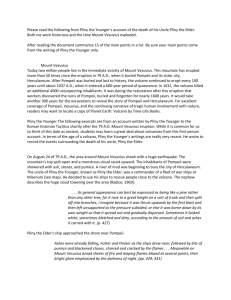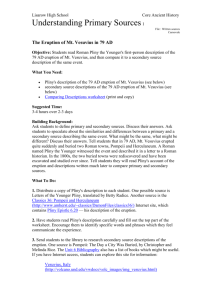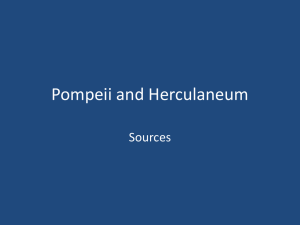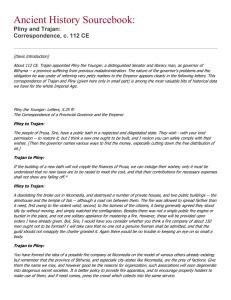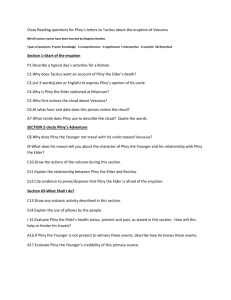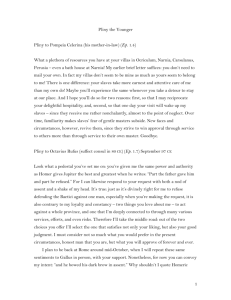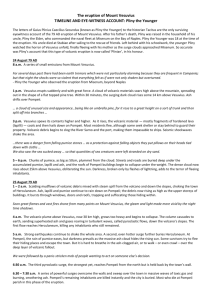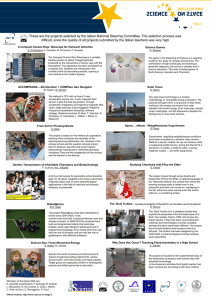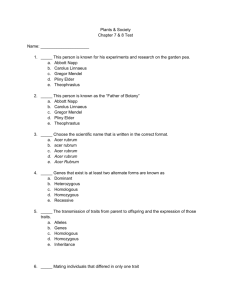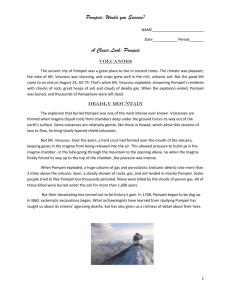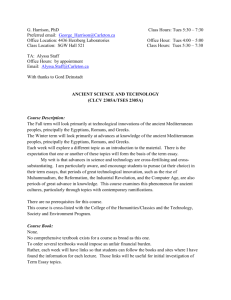Pompeii & Vesuvius Test Answers: Pliny the Younger
advertisement
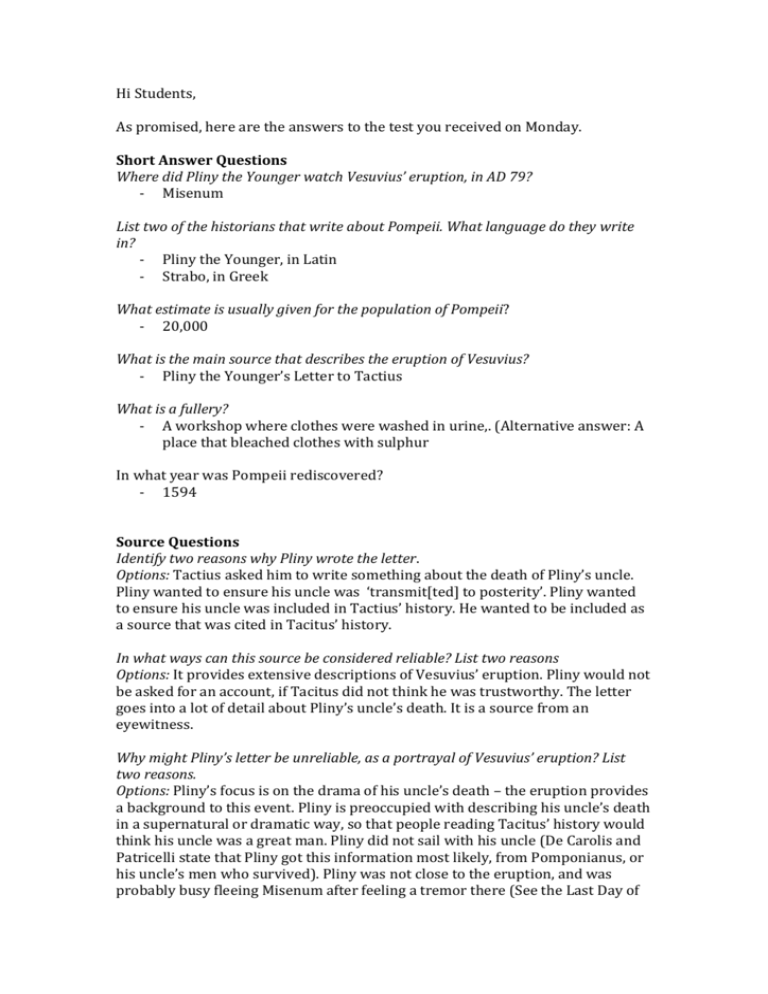
Hi Students, As promised, here are the answers to the test you received on Monday. Short Answer Questions Where did Pliny the Younger watch Vesuvius’ eruption, in AD 79? - Misenum List two of the historians that write about Pompeii. What language do they write in? - Pliny the Younger, in Latin - Strabo, in Greek What estimate is usually given for the population of Pompeii? - 20,000 What is the main source that describes the eruption of Vesuvius? - Pliny the Younger’s Letter to Tactius What is a fullery? - A workshop where clothes were washed in urine,. (Alternative answer: A place that bleached clothes with sulphur In what year was Pompeii rediscovered? - 1594 Source Questions Identify two reasons why Pliny wrote the letter. Options: Tactius asked him to write something about the death of Pliny’s uncle. Pliny wanted to ensure his uncle was ‘transmit[ted] to posterity’. Pliny wanted to ensure his uncle was included in Tactius’ history. He wanted to be included as a source that was cited in Tacitus’ history. In what ways can this source be considered reliable? List two reasons Options: It provides extensive descriptions of Vesuvius’ eruption. Pliny would not be asked for an account, if Tacitus did not think he was trustworthy. The letter goes into a lot of detail about Pliny’s uncle’s death. It is a source from an eyewitness. Why might Pliny’s letter be unreliable, as a portrayal of Vesuvius’ eruption? List two reasons. Options: Pliny’s focus is on the drama of his uncle’s death – the eruption provides a background to this event. Pliny is preoccupied with describing his uncle’s death in a supernatural or dramatic way, so that people reading Tacitus’ history would think his uncle was a great man. Pliny did not sail with his uncle (De Carolis and Patricelli state that Pliny got this information most likely, from Pomponianus, or his uncle’s men who survived). Pliny was not close to the eruption, and was probably busy fleeing Misenum after feeling a tremor there (See the Last Day of Pompeii, or Pliny minor, Epistulae 6.20) . There was a large time-gap between Vesuvius’ eruption and when Pliny wrote this letter. How is Pliny’s letter useful, for telling us about … (a) (b) (c) (d) (e) (f) Vesuvius’ eruption Roman aristocrats Pliny’s family How Romans regarded slaves Pliny the Elder’s personality Pliny the Younger’s personality (a) Extensive descriptions give a sense of how it would have been viewed at the time. (b) Roman aristocrats (nobiles) were expected to take a military role (Pliny the Elder was an admiral). They often lived in villas, or in areas close to the ocean (such as Misenum). Nobiles communicated often via letters. If Pliny the Elder provides any indication, they had a strong sense of duty – as he immediately set sail to rescue the wife of a friend, Rectina. (c) Pliny minor took his uncle as a role model. (A Good answer would make reference to the fact that the elder Pliny adopted Pliny minor, after his parents died. His family owned a villa at Misenum, was brought much prestige by the work of Pliny major (as the letter tells us that he wrote extensively, and these were quite popular. Pliny major was also an admiral). (d) This was a trick question – there is not much in the letter that suggests much about Roman attitudes to slaves. (e) Pliny major had a strong sense of duty to his friends, setting sail with ships as a result of hearing of one. However, considering the number of ships that he took (an admiral is in charge of many vessels), it can be suggested that he set out to rescue other people in the area, as well. This evidence suggests that Pliny major was civic-minded. He enjoyed writing, was curious about science and as he wanted to get closer to the eruption upon observing it, he had an intense curiosity. (f) Pliny minor was more introverted at the time of Vesuvius’ eruption, and preferred to remain at Misenum. It also shows that he admired his uncle from afar. He states, ‘Happy are they, in my opinion,, to whom it is given either to do something worth writing about, or to write something worth reading most happy, of course, those who do both’ in his letter to Tactius. While he appreciated his uncle’s curiosity, he did not believe in putting himself in harm’s way for others, or for the sake of science. This said, he has a strong sense of loyalty to friends and family, as he still holds his uncle in high esteem, as he is writing 20 years after Vesuvius’ eruption.
